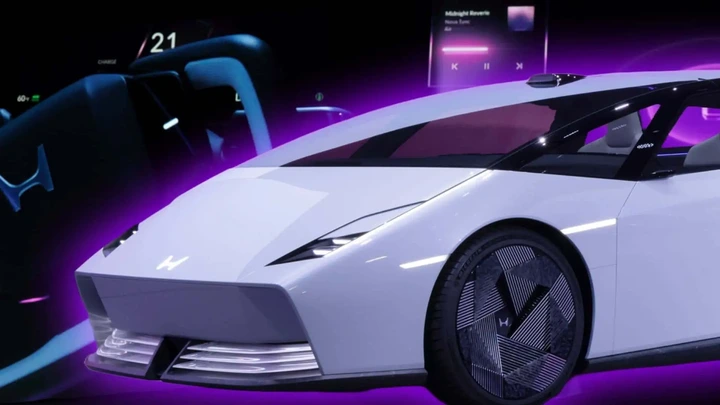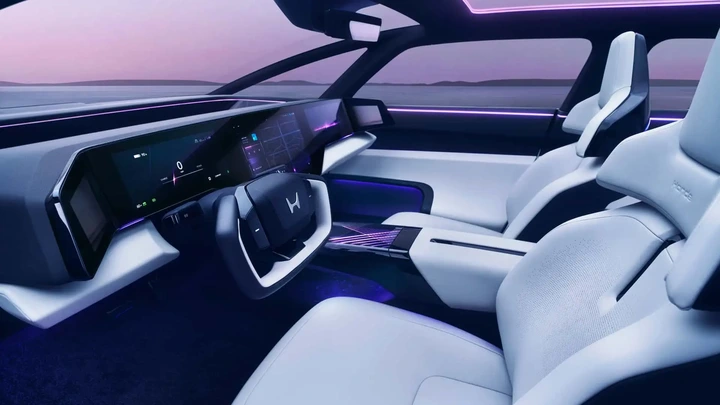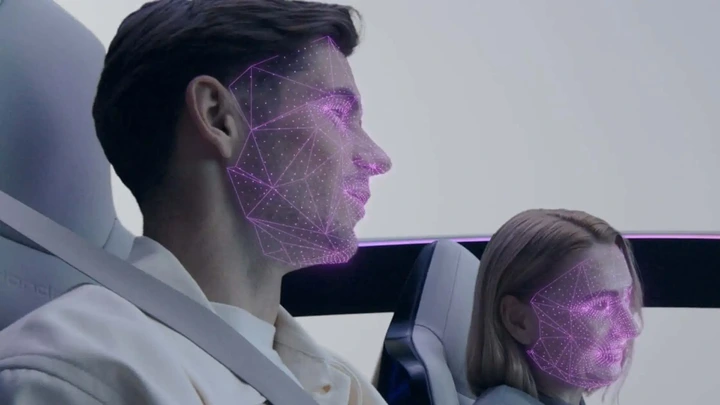Here’s Why Honda Aims to Integrate AI into Your Vehicle
AI was omnipresent at CES. For Honda, it's a vital component of the ambitious commitments surrounding the new 0 Series. But will it truly deliver?

View pictures in App save up to 80% data.
A woman drives along a bucolic coastal road at dawn in her Honda 0系列 Saloon, which then asks her if she wants to see a "beautiful view" somewhere. It knows her favorite color, the names of her friends, what kind of mood she's in and how to take care of her after she's had a bad day.
If you drive a Honda right now, it doesn't do any of that. (Well, maybe the last one, if you're in a Civic Type R or something.) And you probably haven't ever thought that it should. But Honda—like much of the rest of the car industry—is banking on a future where you will want, and pay for, features powered by artificial intelligence that will totally redefine the experience of owning and operating a car.
However, it's uncertain whether that's truly what people will desire from their vehicles in the years ahead, and whether it's even feasible to achieve. This remains a challenging question to answer.
As expected amid its current boom, AI was everywhere at CES 2025. Home gadgets, powerful new processors and, yes, cars. Most of our collective experience with AI so far, if we have any, has probably been limited to using ChatGPT to cheat on term papers, sifting through an endless slop of fake images in our social media feeds and fretting for the day when it might take our jobs. But investors and the tech industry writ large are bullish about the ways AI might transform every way we work and live—including, yes, how we drive.

View pictures in App save up to 80% data.
Image credit: Honda
03 Honda 0 Sedan interior
Honda wants in on this too. The 0 Series Saloon and SUV may have made waves for slick, wedge-like designs that boldly show the world that Honda is finally taking electric vehicles seriously. But this family of cars, which are headed to production in 2026, are more than just Honda's first modern from-the-ground-up EVs—they represent all the ways Honda wants to plant its flag on the "mobility" tech of the future.
This undoubtedly refers to AI. But what does this imply for automobiles? For Honda, it signifies that AI will serve as the "driving force" that reveals many unique features of the 0 Series.
A 'Personalized' Approach
"Our EVs will offer 'ultra-personal optimization' by thinking completely about the customer, and optimizing all details including precise control settings for vehicle dynamics," Honda electrification executive Katsushi Inoue said in his CES keynote speech. "Like a smartphone, various functions of 0 Series models will continue to advance even after the purchase. The more it is used, the more personalized it will become."
The "like a smartphone" part is easy enough to understand. Right now, in the U.S. at least, very few cars truly get better over time with new features, with Tesla and Rivian leading the way. Most others have struggled deeply with over-the-air software downloads beyond navigation system updates and maybe bug fixes. But all of them want to get there because they think they can not only make their cars better that way but also charge for many different subscription services along the way.

View pictures in App save up to 80% data.
Image credit: Honda
Honda Facial Recognition AI
"With the utilization of AI and big data, the vehicle will learn the user’s preferences such as music, as well as the driver’s behaviors and tendencies while driving, and will make various suggestions," Honda said on the 0 Series website.
Now, the AI personal assistant that understands when you're having a crappy day like in the video above may sound like a tough sell in 2025—maybe people will want it, but maybe they won't. (We do have a loneliness epidemic all over nearly the whole world.)

View pictures in App save up to 80% data.
Image credit: InsideEVs
Honda Intelligent Assistant
An Enhanced Charging Experience
But there is one more tangible area where Honda hopes AI will make the EV ownership experience much better: charging. Basically, it hopes to lean on AI to eliminate problems like routing to chargers that are offline, or too slow, or jam-packed with people or otherwise just not viable. Right now, any EV driver probably leans on a hodgepodge of apps like ABRP, PlugShare or Tesla's app to figure that out. In the future, a 0 Series Honda will sort all of that out for you.
"By incorporating [Amazon Web Services] generative AI and related technologies into Honda intelligent technology, and analyzing d